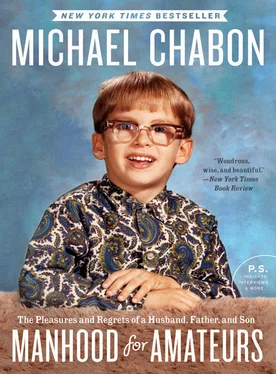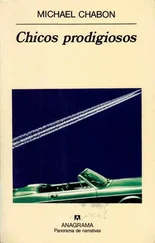“High high,” I said.
My daughter’s cheeks colored as I met her gaze, in embarrassment and in pleasure, too, I thought, as though her insight had been confirmed in a way that gratified her sense of her own sophistication.
I could remember this moment in my own life, when I was exactly her age and had yet to encounter actual marijuana: the sudden consciousness, a flower of preteen lore and hermeneutics, that the lyrics to Beatles songs were salted with and in some cases constructed entirely from sly and overt references to drug use. Not just “Lucy in the Sky with Diamonds” or “She Said She Said,” which supposedly re-creates an acid-powered conversation between John Lennon and Peter Fonda, but less obvious numbers like “Girl,” on Rubber Soul , which was, it was claimed, a protracted allegory of marijuana use, with the hissed sighs that punctuate its choruses meant to represent the sound of someone taking a big, long toke. The line Roll up for the mystery tour , I had been told, referred to the rolling of joints.
So I recognized that flush in my daughter’s cheeks. She was a good girl, and I had once been a good boy, and I remembered that simultaneous sense of disapproval and fascination with the lyrical misbehavior of the boys from Liverpool. Thirteen is the age at which you begin to become fully aware of hypocrisy, contradiction, ambiguity, coded messages, subtexts; it is the age, therefore, at which you must begin to attempt to sort things out for yourself, to grab hold, if you can, of any shining thread in the dizzying labyrinth. And there, for me as for my children three decades later, were the Beatles, passing with astonishing and even brutal swiftness from the self-censoring radio-ready plaintext of “Love Me Do” and “I Wanna Hold Your Hand” to the encrypted thickets of songs like “I Am the Walrus” or “Happiness Is a Warm Gun”: the eight-year chronicle in music of the band’s attempt to sort things out for themselves as they came of age, the oeuvre itself a dazzling mass of puzzles and contradictions to be sorted.
“Dad, what does it feel like?” my son said, returning to the table with his glass of milk.
“Getting high?” I said. This time there was no hesitation. I had thought about this conversation, imagined it, planned for it, enough that I ought to have been ready; but even though I had spoken often with my wife (who for many years taught a class at Boalt Hall, UC Berkeley’s law school, called “Legal and Social Implications of the War on Drugs”) about our parental approach to talking about drug use, now that the moment was actually upon me (and she just happened to be out of town), I found that I was not ready at all. I was caught completely off guard. And maybe that’s why I came right out with the truth.
“It feels pretty good,” I said. “It makes you feel like you’re really, uh, being with the people you’re with. It makes you insanely hungry and thirsty. It makes you paranoid. It makes your heart race. It makes you sluggish. It makes you think things are really funny that might not actually be that funny at all.”
“Like dead bodies?” my younger daughter suggested brightly. She was only six years old, but it looked like she was going to be in on this discussion, too.
“Uh, yeah, well, no, more like a bad Elvis movie,” I said. “It makes you have thoughts that seem really, really deep and profound, and then the next day when you remember them, they seem totally lame.”
“I wrote a poem in a dream I had,” the thirteen-year-old said. “The same thing happened with that.”
“Wait,” the ten-year-old said. “Wait. You mean — have you actually smoked marijuana?”
Here it was, the big moment, the one we had all been waiting for, dreading, preparing for years in advance.
“Duh!” the thirteen-year-old informed her brother, doubling down on her proven-worldly views of the role of drugs in modern culture. “Like, every adult over a certain age has done it.”
“Well, not every adult,” I said. “But yes. I have.”
“How many times?” my son said, eyes wide.
So far, even blindsided as I had been by the abrupt onset of this conversation, I hadn’t violated the guiding principle my wife and I had decided on for its eventual proper conduct: I had been honest. But now I had a moment’s pause before replying, unwilling to pronounce those two simple words: one million .
The first person I ever saw smoking pot was my mother, sometime around 1977 or so, sitting in the front seat of her friend Kathy’s car, passing a little metal pipe back and forth before we went in to see a movie at the Westview in Catonsville, Maryland. I have a dim sense that at fourteen I neither disapproved of nor felt any surprise at this behavior, leading me to conclude that my mother already must have told me, prepared me with the information, that she was “experimenting” with pot (because that was all it ever amounted to for her — a brief reagent test conducted within the beaker of her new status as a single woman in the great wild laboratory of the 1970s). If I was shocked by the idea of my mother breaking the law, that shock must have been mitigated by the casualness, and by the lack of shame or embarrassment with which my mother, an otherwise upright, sober, and law-abiding taxpayer, went about it. It appeared to be no big deal for a couple of grown women to smoke a bowl: an innocent, everyday sign of the times. Nevertheless, smoking marijuana remained for years afterward nothing I had any interest in trying myself, not so much because I feared its effects or even because it was against the law but simply because I was a good boy, and as such I looked down my nose with a cosmic, Galactus-sized censoriousness at the kids I knew — stoners, burnouts — who smoked it. I would not have minded breaking the law or getting high, but I could not abide the thought of being bad.
I clung to my increasingly cumbersome and ineffectual goodness, fighting a series of rearguard actions against the increasing presence in my life of rock and roll and sex, until, like the personnel of the U.S. embassy in Saigon leaping to the helicopters, I abandoned it entirely, at once. Early in October of my first term at Carnegie Mellon University, I was taught the rudiments of bong-handling by a team of experts. I lay down on the floor of a dorm room in Mudge Hall, under the light of a single red bulb, and swam through layers of warmth and well-being while an apparently infinite, starry, velvet-bright quantity of wonder was ladled into my ears by Jeff Beck, Jan Hammer and his spacefaring Group.
That was 1980. I smoked marijuana (with odd European forays into the mysteries of hashish) over the course of the next twenty years, never every day, mostly on weekends or when some came around, but at times with all the fierce passion of a true hobbyist. The price went up, and the quality improved so acutely that the nature of the high began to alter without quite changing, like a television picture increasing the resolution of its image. My level of dope-smoking peaked, becoming nearly habitual just after the breakup of my first marriage in 1990, and began to dwindle thereafter as the elevated concentrations of THC (or something) took a toll and I found that getting high often left me feeling apprehensive, hypercritical of myself, and prone to an unwelcome awareness of my life as nothing but a pile of botched and unfinished tasks. Over the course of these pot years I graduated from college, got a master’s degree, wrote a number of novels, paid my bills and my taxes, etc. I was never arrested, never got into any kind of trouble, never broke anything that could not be repaired. Mostly it had been fun, sometimes hugely; sometimes not at all. Marijuana could intensify the sunshine of a perfect summer day, but it could also deepen the gloom of a wintry afternoon; it had bred false camaraderies and drawn my attention to deep flaws and fault lines when what mattered — what matters so often in the course of everyday human life — were the surfaces and the joins.
Читать дальше
Конец ознакомительного отрывка
Купить книгу












